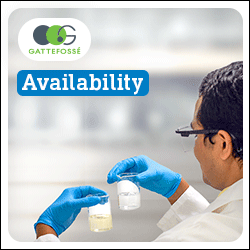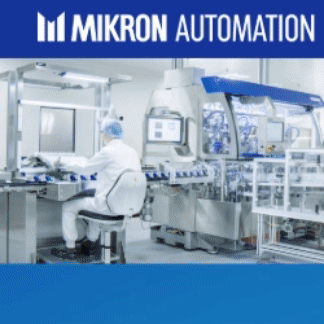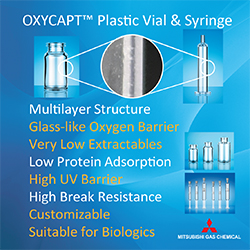Vaccitech’s VTP-300 Was Well-Tolerated & Induced T cells Against All Targeted HBV Antigens in Both Healthy Volunteers & Patients With Chronic HBV Infection in Interim Analyses
Vaccitech plc recently announced results from ongoing Phase 1 and Phase 1b/2a clinical trials of VTP-300, an immunotherapy candidate in development for the treatment of CHB infection. Results to date showed that both the ChAdOx1-HBV (prime), in study HBV001 (healthy volunteers and CHB patients), and the combination of ChAdOx1-HBV (prime) and MVA-HBV (boost), in study HBV002 (CHB patients only), were highly immunogenic to all HBV viral targets, and were generally well tolerated. The data are available in two posters at the AASLD The Liver Meeting®.
“The interim results of these ongoing studies are promising in the field of HBV immunotherapy,” said Thomas Evans, MD, Chief Scientific Officer of Vaccitech. “They showed that our prime-boost strategy was able to establish potent T cell responses against virally-infected liver cells in immune-suppressed CHB patients, and no vaccine-associated serious adverse events were reported. We are pleased to receive this initial immunological data on VTP-300 ahead of evaluating results from patients receiving VTP-300 in combination with a low-dose checkpoint inhibitor.”
Professor Eleanor Barnes, Chief Investigator on the HBV001 and HBV002 studies, added “These data are exciting, as they support our approach for providing cell-targeting immunotherapy in chronic hepatitis B patients. The high levels of T cells that targeted several major HBV genes, and their cross-reactivity towards two of the major circulating HBV viral genotypes, support further evaluation of this candidate to meet an unmet medical need for patients across the globe.”
HBV001 is an open-label, non-randomized, Phase 1 clinical trial (NCT042979.17) to evaluate the safety, tolerability, and immunogenicity of ChAdOx1-HBV in humans. Participants are healthy controls (HC) and patients with CHB with supressed HBV DNA on nucleos(t)ide therapy. ChAdOx1-HBV was well tolerated with no serious adverse events reported as of the date of interim analysis. Total T cell responses to the HBV immunogen peaked at day 28 post dose in both HC (mean 1,284 SFU per million PBMCs) and CHB patients (mean 184 SFU). HBV-specific T cell responses generated by ChAdOx1-HBV were induced to all immunogens in the product candidate and were reactive to both genotype C and genotype D peptides. The most common adverse event reported was injection site pain, and all cases were mild in severity.
HBV002 is an open-label trial to determine the safety, immunogenicity and preliminary efficacy of ChAdOx1-HBV and MVA-HBV (VTP-300), with or without nivolumab, in patients with chronic HBV with supressed HBV DNA on nucleos(t)ide therapy.
As of September 2021, 30 patients had been enrolled, and no concerning safety signals or Serious Adverse Reactions have been reported. Day 35 results from the first six CHB patients in Group 1 (MVA-HBV Day 0, MVA-HBV Day 28) and Group 2 (ChAdOx1-HBV Day 0, MVA-HBV Day 28) are reported in our presentation. Total T cell responses were superior, in the high hundred SFUs per million PBMCs, following the heterologous prime-boost (VTP-300) in Group 2, compared to Group 1.
VTP-300 induced antigen specific T cell responses to all antigens, with elevated responses to core and polymerase, as compared to healthy controls dosed with ChAdOx1-HBV alone in HBV001, who exhibited a greater response to surface antigen. As in the HBV001 results, T cell responses cross-reactive to Genotype D specific peptides were measured in the majority of patients.
Additional patients receiving VTP-300 in combination with low-dose nivolumab (Groups 3 and 4) are currently enrolling in the HBV002 trial with data, including surface antigen (HBsAg) levels, anticipated during the first quarter of 2022.
Vaccitech is a clinical-stage biopharmaceutical company engaged in the discovery and development of novel immunotherapeutics and vaccines for the treatment and prevention of infectious diseases and cancer. The company’s proprietary platform comprises proprietary modified simian adenoviral vectors, known as ChAdOx1 and ChAdOx2, as well as the well-validated Modified Vaccinia Ankara, or MVA, boost vector, both with demonstrable tolerability profiles and without the ability to replicate in humans. The combination of a ChAdOx prime treatment with subsequent MVA boost has consistently generated significantly higher magnitudes of CD8+ T cells compared with other technologies and approaches. The company has a broad pipeline of both clinical and preclinical stage therapeutic programs in solid tumors and viral infections and prophylactic viral vaccine programs. Vaccitech co-invented a COVID-19 vaccine with the University of Oxford, now approved for use in many territories and exclusively licensed worldwide to AstraZeneca through Oxford University Innovation, or OUI. Vaccitech is entitled to receive a share of the milestones and royalty income received by OUI from AstraZeneca.
Total Page Views: 808













